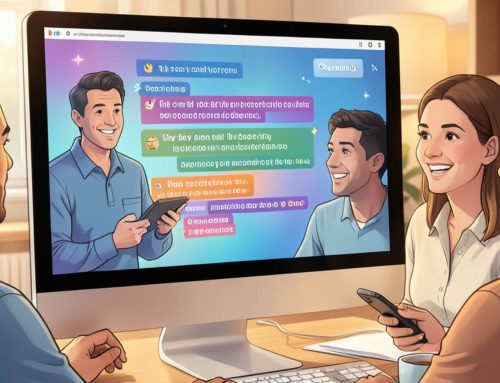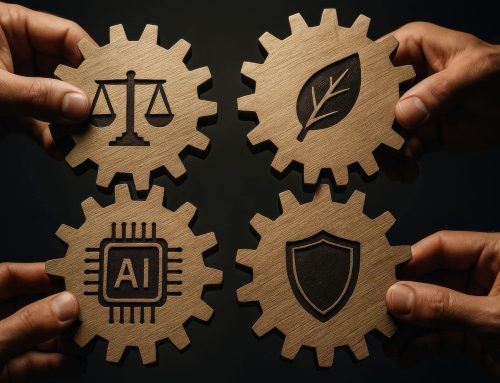You might think that in 2025, AI-generated text translation would make traditional translation agencies obsolete. After all, machines are fast, always on, and getting more accurate every day. But the reality isn’t so simple and this is where Langpros (and other high-quality language service providers) continue to bring irreplaceable value.
Here’s why translation companies are not just surviving, they’re evolving to lead in a world powered by AI.
Translation Is Not Just About Words, It’s About Meaning and Context
AI models are incredibly powerful at processing massive amounts of text, but language isn’t just data. It’s deeply tied to culture, intent, and context. When translating something like a legal document, a marketing campaign, or a diplomatic text, getting the tone, nuance, or legal precision wrong can have huge consequences.
That’s why businesses and governments still rely on human translators. Machines can give a draft, but humans interpret subtleties: idioms, ambiguity, double-meanings, and all those small cultural nuances that matter. According to expert reviews, human translators still outperform machines when the stakes are high.
AI + Human = The Best of Both Worlds
The smartest translation companies don’t treat AI as a threat, they treat it as a powerful assistant.
- AI speeds things up. It can produce a first draft quickly, align terminology using translation memories, and propose consistent term bases.
- Human experts clean it up. They make judgment calls on tone, clarity, legal accuracy, and cultural fit.
At Langpros, we envision translation as a hybrid process, combining machine speed with human expertise to create high-quality, context-aware content. This ensures cost-effectiveness without sacrificing the critical elements that only a human can deliver.
Quality Assurance, Security & Compliance
When your content is sensitive, for example, contracts, internal policies, or compliance documents, you need more than just a translation; you need accountability, control, and auditability.
Translation companies provide:
- Secure workflows that never expose your data to risk
- Strong compliance measures (data protection, confidentiality)
- Versioning, memory, and traceability so translations remain consistent and auditable
These are capabilities that most pure-AI tools don’t fully offer yet. Enterprises choose to work with translation companies because they deliver not only language, but also trust.
AI Has Blind Spots, Especially in Specialized Fields
AI translation works best for generic text, but when it comes to specialized content (like legal, medical, regulatory, or technical documents), it often struggles with domain-specific terminology or the nuances of a particular industry.
In a 2025 market analysis, researchers found that while AI has improved dramatically, its performance drops significantly in heavily specialized contexts.
That’s exactly where human expertise becomes essential. Translators who understand a subject deeply can catch errors, clarify ambiguous phrases, and ensure translations make sense in context.
Maintaining Cultural Sensitivity & Brand Voice
One of the most underestimated aspects of translation is “localization”, not just translating words, but adapting meaning, humor, and brand voice for different markets. A brand message can resonate in one language and completely misfire in another if done incorrectly.
Translation companies bring native speakers and localization experts into the loop. They make sure your brand voice stays consistent, culturally appropriate, and meaningful, across all your target languages.
Data Partner for AI Evolution
As AI becomes more advanced, translation companies are not just consumers of AI, they also help build it.
By working with professional translators, companies like Langpros contribute to training better, more accurate AI models. Human translators validate and refine machine-generated text, which in turn helps the AI “learn” domain-specific language, culturally nuanced phrasing, and real-world usages.
This means that translation companies are becoming AI trainers and data partners, not just language vendors. They help build more intelligent, accurate systems that benefit everyone.
Real-World Trust & Risk Mitigation
Many organizations prefer working with established translation providers because they offer:
- A clear chain of responsibility (“Who reviewed this?”)
- High-quality revisions and human proofreading
- Legal or certified translations when required
AI-only solutions may be fast, but when something goes wrong, a legal clause is misinterpreted, or a policy document is mistranslated, the cost of error can be catastrophic. Human-driven translation services help reduce that risk.
The Future: Collaboration, Not Replacement
The future of translation is not human vs. AI, it’s human + AI, working in harmony.
- AI accelerates translation, makes workflows more efficient, and handles high-volume tasks.
- Humans bring the judgment, context, and creativity required to ensure every translation is meaningful and safe.
At Langpros, we embrace this future. Our team of linguists collaborates to combine speed with precision and automation with authenticity.
Final Thoughts
Yes, AI is transforming translation, but it’s not replacing the need for real human expertise. Translation companies remain central to the process, especially for nuanced, mission-critical content.
For organizations that demand quality, trust, and cultural finesse, working with a professional translation provider like Langpros is still the smartest way to go.








